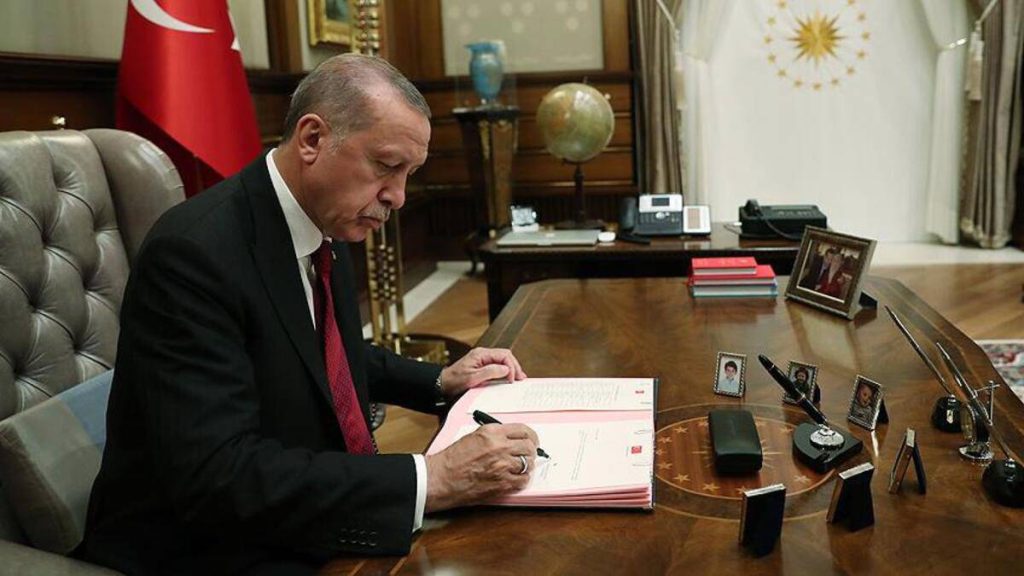In a significant move, President Recep Tayyip Erdoğan has granted a pardon to 81-year-old Kerim Boran, a prisoner struggling with severe health issues. Boran was serving time for terrorism-related offenses, reportedly connected to his role in mediating family disputes within the pro-Kurdish Peoples’ Democratic Party (HDP). This pardon, alongside another issued to 54-year-old Naci Kılıç, sparks renewed discussions on the treatment of sick prisoners and ongoing peace efforts in Turkey, particularly concerning Kurdish rights.
| Article Subheadings |
|---|
| 1) Overview of Kerim Boran’s Case |
| 2) Health Concerns of Kerim Boran |
| 3) Legal Process Leading to the Pardon |
| 4) Wider Implications of the Pardons |
| 5) The Context of Kurdish Rights and Peace Efforts |
Overview of Kerim Boran’s Case
Kerim Boran has been in the spotlight following President Erdoğan’s recent decision to issue him a pardon. Convicted in 2021, Boran, alongside several other elderly individuals, was accused of being part of an unauthorized judicial mechanism associated with the outlawed Kurdistan Workers’ Party (PKK). His conviction stemmed from attempts to mediate family disputes, which were deemed criminal acts under the prevailing political context. Boran’s release represents a notable development in Turkey’s controversial legal landscape regarding crimes related to Kurdish political activism.
Health Concerns of Kerim Boran
Boran’s declining health has emerged as a critical factor in the decision to grant him a pardon. Reports indicated that Boran suffers from a range of severe medical conditions, including heart failure, diabetes, hypertension, and Parkinson’s disease. His health was assessed in October 2023 by the Council of Forensic Medicine (ATK), which classified his condition as “advanced age.” This medical evaluation underpinned his attorney’s argument for clemency, illustrating how his deteriorating health may have influenced the political calculus surrounding his imprisonment. The nature of his ailments raises broader questions about the treatment of elderly and ill prisoners in Turkey, particularly those convicted of politically sensitive offenses.
Legal Process Leading to the Pardon
Following the ATK’s report, Boran’s attorney took steps to apply for a presidential pardon. This involved submitting a formal request to the Justice Ministry, complete with medical documentation detailing his condition. On September 18, the Justice Ministry formally presented this request to President Erdoğan, which led to a subsequent decree issued by the president to lift Boran’s sentence. Legal experts suggest that this process underscores how political dynamics can shape judicial outcomes in Turkey, particularly in cases involving sensitive political affiliations.
Wider Implications of the Pardons
Boran’s pardon is not an isolated incident. The president also extended clemency to 54-year-old Naci Kılıç, who faced a multitude of serious charges including armed robbery and attempted murder. This move has been interpreted as part of Erdoğan’s broader strategy to address the fraught relationship between the state and marginalized communities, including Kurds. Critics, however, contend that Erdoğan’s pardons have been inconsistent, often influenced by political expediency rather than a consistent humanitarian rationale. This inconsistency raises concerns about the fairness of the judicial system and how it treats different groups.
The Context of Kurdish Rights and Peace Efforts
Boran’s release occurs amid a renewed focus on Kurdish peace efforts within Turkey. Following a call for disarmament from PKK leader Abdullah Öcalan early in 2023, discussions around peace processes have gained momentum. The PKK’s announcement of its decision to dissolve itself earlier this year serves as a potential turning point. Erdoğan’s nationalist ally, the Nationalist Movement Party (MHP) leader Devlet Bahçeli, has been vocal in advocating for these peace efforts, suggesting a shift in the political landscape. However, many pro-Kurdish rights groups argue that actions must speak louder than words, calling for substantive reforms rather than symbolic gestures, particularly concerning the treatment of sick prisoners.
| No. | Key Points |
|---|---|
| 1 | Kerim Boran, aged 81, has been granted a presidential pardon due to severe health issues. |
| 2 | Boran was convicted of terrorism-related offenses linked to mediation within the pro-Kurdish political framework. |
| 3 | The Council of Forensic Medicine classified Boran’s health status as stemming from advanced age. |
| 4 | The legal process involved submitting a formal request for clemency, highlighting political influences. |
| 5 | Broader implications suggest inconsistency in Erdoğan’s application of presidential pardons towards politically sensitive cases. |
Summary
The recent pardon of Kerim Boran raises significant concerns about the treatment of ill prisoners in Turkey, particularly those connected to politically charged crimes. His health issues appear to have played a pivotal role in the decision, highlighting the intersection of health, law, and politics. As the Turkish government navigates the complex landscape of Kurdish rights and ongoing peace dialogues, the sincerity and effectiveness of such efforts remain under scrutiny. Boran’s case could serve as both a pivotal moment in Turkey’s legal system and a reflection of broader issues surrounding human rights.
Frequently Asked Questions
Question: What medical conditions is Kerim Boran suffering from?
Kerim Boran suffers from various serious health issues, including heart failure, diabetes, hypertension, chronic obstructive pulmonary disease, asthma, Parkinson’s disease, and significant sensory impairments.
Question: What was the legal basis for Boran’s pardon?
The legal basis for Boran’s pardon was primarily his advanced age and severe health conditions, as evaluated by the Council of Forensic Medicine, which led his attorney to request clemency from the president.
Question: What are the implications of Erdoğan’s pardons for Kurdish rights?
Erdoğan’s pardons may signify a potential shift in the government’s approach to Kurdish rights amidst rising peace efforts, but critics argue they highlight inconsistencies and selective applications of justice in politically charged cases.


